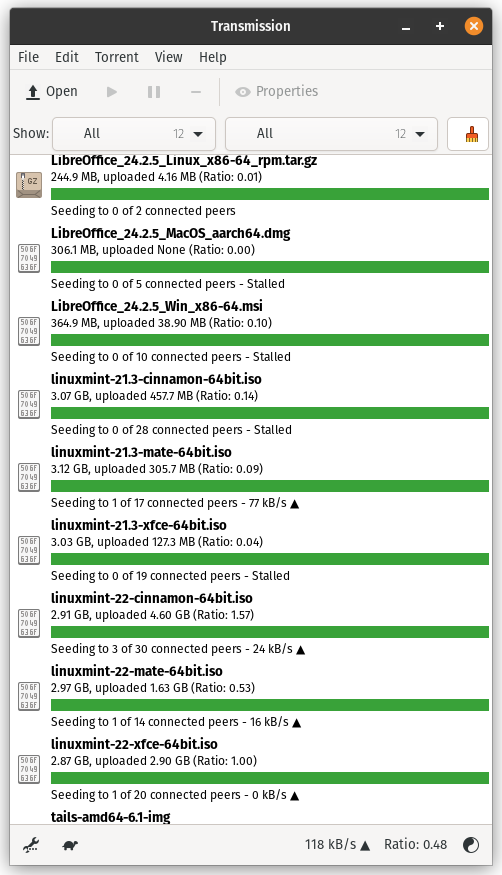this post was submitted on 27 Jul 2024
332 points (95.6% liked)
Linux
49276 readers
1643 users here now
From Wikipedia, the free encyclopedia
Linux is a family of open source Unix-like operating systems based on the Linux kernel, an operating system kernel first released on September 17, 1991 by Linus Torvalds. Linux is typically packaged in a Linux distribution (or distro for short).
Distributions include the Linux kernel and supporting system software and libraries, many of which are provided by the GNU Project. Many Linux distributions use the word "Linux" in their name, but the Free Software Foundation uses the name GNU/Linux to emphasize the importance of GNU software, causing some controversy.
Rules
- Posts must be relevant to operating systems running the Linux kernel. GNU/Linux or otherwise.
- No misinformation
- No NSFW content
- No hate speech, bigotry, etc
Related Communities
Community icon by Alpár-Etele Méder, licensed under CC BY 3.0
founded 5 years ago
MODERATORS
you are viewing a single comment's thread
view the rest of the comments
view the rest of the comments

Does anybody download iso's via torrents? Or how to help the actual sites that serve these? Since I trust the source more than torrents.. Especially for an image..
You grab the .torrent file from the source website (Mint, in this case) and it's safe
Ahh makes sense. I still direct download but I guess if I had Torrent client locally it might be nice. But 3-4GiB on direct download doesn't take long..
It's more of a way to reduce costs for the CDN, using torrents everyone contributes and they only have to send a small magnet file.
I might seed a few too then.
For many with unstable ISP connections, http downloads can get corrupted. Torrents are superior in this regard as the file gets split into blocks that each get checksummed for integrity after completion. This helps to ensure that the large iso is actually complete and won't just be garbage on an attempted install. Even if you checksum the iso from http download, you have to pull the entire thing again if it is damaged whereas the torrent would just repull the damaged blocks automatically.
Fair. That is a good usecase
It doesn't, but thousands of people all downloading 3-4GB from the same site will put more load on the site. Torrents avoid this issue by downloading little bits from lots of different peers
Verifiying the checksum of an iso takes 30 seconds... You don't need to trust anyone
I don't think that is even necessary. If you download the .torrent file from a trusted source it will already contain a secure hash of the final file. Also every piece you receive also comes with a hash that can also be verified through the .torrent file. If you don't trust the source enough to provide a valid .torrent, I don't see how downloading the image directly from them makes any difference. Read more: Official BitTorrent BEP BitTorrent V2 and SHA-256
Well you do need to trust the checksum provided. That is the one you are checking against. Better would be a signature from a key you trust.
In the end a modern torrent is just a hash.
Checksum doesn't verify authenticity. You need to verify the signature
Been on Linux 6 years, never done it. Extra steps
Length of time never means quality of decisions. Always best to validate. So easy to package up malware and farm folks bank accounts.
Hence my threat model hasn't included torrents.
I prefer to download isos via torrents. You can easily check the checksum and signature once it's downloaded. And you're getting the torrent/magnet link/etc from the source so it's not some random torrent from piratebay or something lmao
Why not direct download from website?
I think it saves them costs but idk shit about servers
Can be faster than downloading from a centralised server that everyone is trying to download from. But mostly just habit.
Avoid detracting from the hosts bandwidth quota.